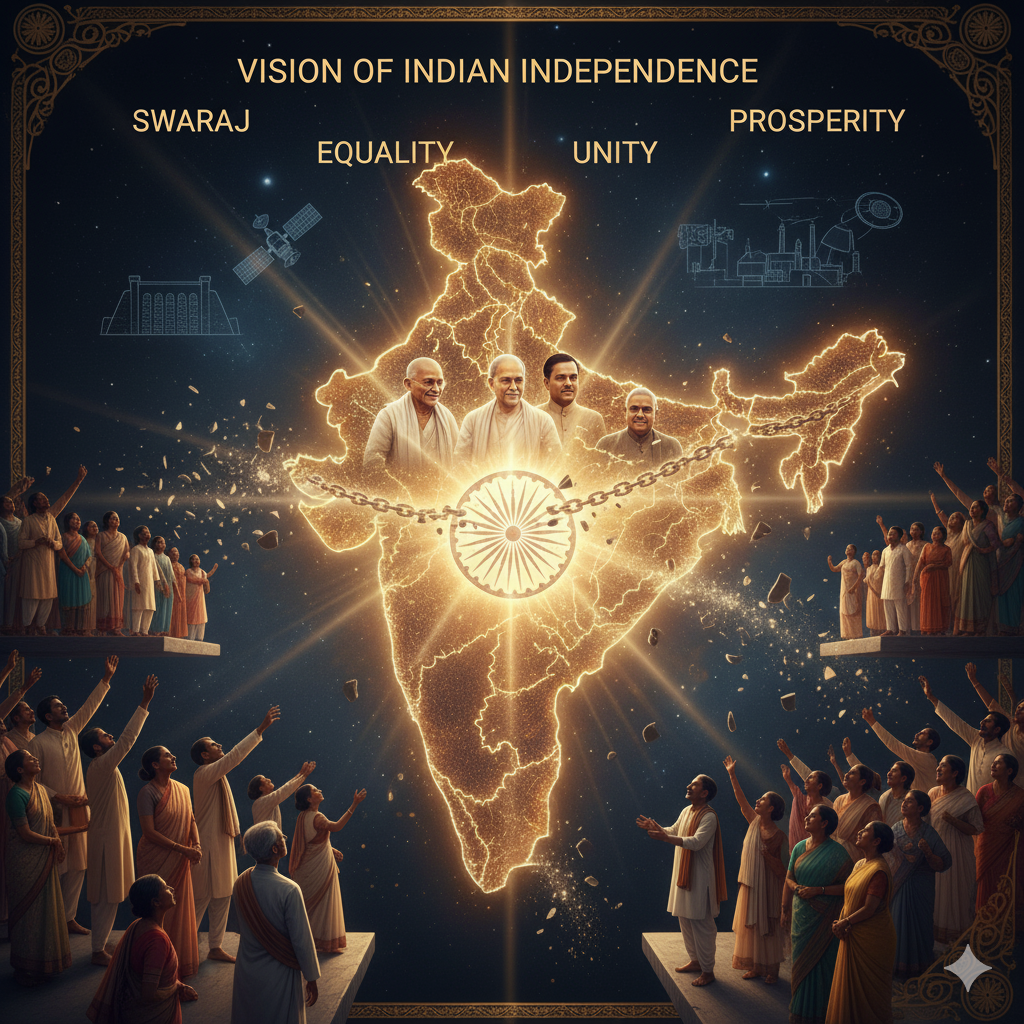The modern history of India is filled with significant events that have shaped its political, social, and economic landscape. Some of the key events include:
- British Colonial Rule (1858–1947):
- The British East India Company’s rule ended in 1858, when India came under direct British control after the Indian Rebellion of 1857.
- This period was marked by economic exploitation, social reforms, and significant cultural exchanges.
- Indian National Congress Formation (1885):
- The Indian National Congress (INC) was formed with the goal of obtaining greater representation for Indians in British governance.
- Over time, it became the principal political party advocating for Indian independence.
- Jallianwala Bagh Massacre (1919):
- British troops, under General Dyer, opened fire on a peaceful gathering in Amritsar, killing hundreds of unarmed Indians.
- This event galvanized Indian resistance against British rule and played a pivotal role in the Indian independence movement.
- Non-Cooperation Movement (1920-1922):
- Led by Mahatma Gandhi, this movement called for non-violent resistance to British rule, including boycotting British goods, schools, and services.
- Salt March (1930):
- Gandhi led a 240-mile march to the Arabian Sea to protest the British monopoly on salt production, an iconic event in India’s independence struggle.
- Quit India Movement (1942):
- The INC, under Gandhi’s leadership, launched the Quit India Movement, demanding an end to British rule. The movement was met with mass arrests and repression, but it increased the pressure on the British government.
- Partition and Independence (1947):
- India gained independence from Britain on August 15, 1947, but was partitioned into two separate nations: India and Pakistan.
- The partition led to widespread violence, mass migrations, and the displacement of millions.
- Constitution of India (1950):
- India adopted its Constitution on January 26, 1950, establishing it as a republic. Dr. B.R. Ambedkar was the principal architect of the Constitution.
- Indo-Pakistani War (1965):
- Tensions between India and Pakistan over the Kashmir region led to a full-scale war, which ended in a ceasefire and the subsequent Tashkent Agreement.
- Emergency (1975–1977):
- Indian Prime Minister Indira Gandhi declared a state of emergency, suspending civil liberties and cracking down on political opposition. It was a controversial period in India’s democracy.
- Economic Liberalization (1991):
- In response to a balance of payments crisis, India began a series of economic reforms, including the liberalization of markets, devaluation of the rupee, and opening up to foreign investment.
- This marked a significant shift toward a more market-oriented economy.
- Kargil War (1999):
- A conflict between India and Pakistan in the Kargil region of Kashmir, the Kargil War was fought after Pakistan infiltrated Indian territory. The war ended with India reclaiming the territory.
- India’s Nuclear Tests (1974 & 1998):
- India conducted its first nuclear test, “Smiling Buddha,” in 1974, and further tests in 1998 under the leadership of Prime Minister Atal Bihari Vajpayee, which led to global concern and sanction.
- Rise of Digital India (2000s–present):
- India has rapidly expanded its digital infrastructure, with major initiatives like the Digital India campaign, which aims to increase online connectivity and access to government services.
- Abrogation of Article 370 (2019):
- The Indian government revoked Article 370 of the Constitution, which granted special autonomy to the region of Jammu and Kashmir. This was a controversial move that escalated tensions with Pakistan and had widespread domestic implications.
These events, among many others, have had a profound impact on India’s evolution as a modern nation-state.
Image Source: https://www.indiaonline.in/guide/modern-india-timeline




